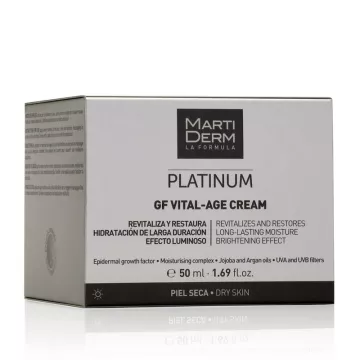What are the main causes of dry skin?
Dry skin can be caused by a variety of factors, including
- Environmental factors: exposure to wind, cold or a dry climate.
- Showers or baths that are too hot, which eliminate the skin's natural oils.
- Use of unsuitable or overly aggressive skin care products.
- Internal factors, such as dehydration, aging or skin disorders (eczema, psoriasis).
To protect your skin, adopt an appropriate routine and avoid products containing irritants such as sulfates or parabens.
What are the best ingredients for moisturizing dry skin?
The following ingredients are recognized for their benefits on dry skin:
- Hyaluronic acid: Retains water in the deep layers of the epidermis.
- Shea butter: Rich in lipids, it intensely nourishes the skin.
- Sweet almond oil: Soothing and moisturizing.
- Glycerin: Attracts and retains moisture on the skin's surface.
- Ceramides: Restore the skin's natural barrier.
Opt for products containing these active ingredients to maintain optimal hydration.
How to choose a cream for dry skin?
When choosing a cream for dry skin, look for formulas :
- Rich in natural oils, such as jojoba or coconut oil.
- Free from alcohol, fragrance or artificial colorants, to avoid irritation.
- Dermatologically tested on sensitive skin.
- Enriched with vitamins A, C and E to strengthen the skin barrier.
A good moisturizing cream should be used daily, morning and night, for visible results.
How can I prevent dry skin?
To prevent dry skin, here are a few simple but effective tips:
- Avoid hot water: prefer lukewarm showers.
- Apply a moisturizing cream within 3 minutes of showering to seal in moisture.
- Use a humidifier in winter to maintain optimum humidity levels indoors.
- Drink at least 1.5 liters of water a day to hydrate your skin from the inside out.
- Protect your skin from the sun with a suitable sun cream.
These simple gestures will help preserve your skin's softness and elasticity.
Are plant oils effective in caring for dry skin?
Yes, vegetable oils are excellent allies for dry skin. Here are a few examples and their benefits:
- Avocado oil: Deeply nourishes thanks to its fatty acids.
- Argan oil: Soothing and regenerating, ideal for skin repair.
- Grape seed oil: Light and rich in antioxidants.
- Borage oil: Reduces irritation and improves skin elasticity.
Use alone or in addition to your moisturizer for optimal results.
What's the best diet for dry skin?
Your diet plays a key role in the health of your skin. To combat dryness, include the following in your diet:
- Foods rich in omega-3 (salmon, walnuts, flaxseed).
- Fruits and vegetables rich in vitamin C (oranges, kiwis, peppers).
- Sources of vitamin E (almonds, spinach).
- Water and herbal teas to keep skin hydrated.
A balanced diet contributes to supple, well-nourished skin.
Does dry skin require exfoliation?
Yes, but exfoliation of dry skin must be carried out gently. Choose :
- An enzymatic scrub, which dissolves dead cells without abrasiveness.
- Appropriate frequency: once a week is sufficient.
- Products containing moisturizing active ingredients to compensate for exfoliation.
Exfoliation helps eliminate dead skin cells, so moisturizing creams are better absorbed.
What are the natural remedies for dry skin?
If you prefer natural solutions, here are some effective options:
- Mask with honey and avocado: deeply moisturizes and nourishes.
- Aloe vera: Soothing and moisturizing, ideal for irritated skin.
- Milk compress: Soothes redness and moisturizes instantly.
- Warm olive oil bath: Nourishes dry skin and calms tightness.
These remedies are simple to prepare and highly effective in restoring soft, supple skin.
How to treat particularly dry areas such as elbows and knees?
For particularly dry areas, here are a few tips:
- Apply a thick layer of rich cream before bedtime.
- Massage with coconut oil or shea butter.
- Gently exfoliate once a week to remove dead skin cells.
Targeted, regular moisturizing is key for these rougher areas.
Are salon treatments recommended for dry skin?
Yes, institute treatments can offer specific solutions, such as :
- Intensive moisturizing treatments based on masks and serums.
- Hyaluronic acid treatments for deep hydration.
- Facial massages with adapted essential oils.
A professional treatment can boost your routine and deliver visible results fast.
